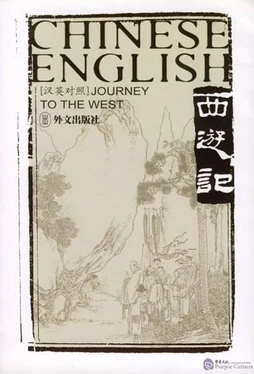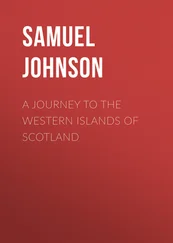The way of the Buddha honors emptiness, rides on the mystery and controls silence, yet saves all beings and dominates all regions. When it raises up the numinous there is nothing higher; when it represses its own divine strength there is nothing lower. When it is big it extends throughout the cosmos; when tiny it can be contained in a fraction of an inch. It does not die and it is not born; it endures a thousand aeons and is eternal. Half hidden and half manifest, it controls all blessings and makes them exist for ever. Mysterious is the wonderful Way; none of those who follow it know its limits. Silent is the flow of the Dharma: of those who grasp it none finds its source. So how can mortal fools in their stupidity follow it without doubts or delusion?
The great teaching arose in the West. Later a wondrous dream came to the Han court, spreading its brilliance and charity to the East. In ancient times, when the Buddha's forms and traces were shared around, they converted people before word could be spread abroad. In the age when they were sometimes visible and sometimes invisible, the people looked up to them and followed them. But later the image was obscures and nirvana was reached, it moved away and left the world, the golden countenance was hidden away and no longer radiated its brilliance in the three thousand worlds. Pictures of the lovely image were made, vainly trying to show the Buddha's thirty-two holy marks. Thereafter his subtle words were widely propagated, rescuing birds on the three roads of life; the teachings he left behind were spread afar, guiding all living beings along the ten stages of development. The Buddha has scriptures that can be divided into the Greater and Lesser Vehicles. There is also magic, the art of spreading mistakes and making right into wrong.
Now our priest Xuanzang, the Master of the Law, is the leader of the Dharma faith. In his youth he was so careful and perceptive that he soon became aware of the value of the three voids. As he grew up the clarity of his spirit embraced the four kinds of patience in his conduct. Not even a pine tree in a wind or the moon reflected in water could be compared with his purity; immortals' dew and bright pearls are no match for his lustrous splendor. His wisdom encompasses all without encumbrance; his spirit fathoms the formless. Rising far above the six impurities, he extends his fragrance through a thousand ages. When he concentrated his mind on the inner sphere he grieved at the torments suffered by the true Dharma; when he settled his thoughts on the gate of mystery he was distressed by the distortion of the profound writings. He longed to put them back into order so that the teachings of the past could be propagated again; and to root out apocryphal texts, enabling the true ones to stay in circulation so as to open the way for later scholars. That is why he lifted up his heart towards the Pure Land, and made a Dharma journey to the West, braving the dangers of distant lands as he walked alone, trusting to his staff. When the snow whirled around at dawn the land would disappear in a moment; and when the dust started to fly at evening the sky was blotted out. He advanced through the mists across a thousand leagues of mountains and rivers, making his way forward through the frosts and rains of a hundred changes of season. With great single-mindedness and making light of his efforts he longed deeply to reach his goal. He wandered around the West for fourteen years, visiting every one of those exotic countries in his search for the true teaching. He visited the Twin Trees and the Eight Rivers, savoring the Way and braving the wind. In Deer Park and on Vulture Peak he gazed upon wonders and marvels. He received the good word from ancient sages and the true teaching from superior worthies, probing deep within the wonderful gates, and exhausting the mysteries. The Way of the Three Vehicles and the Six Disciplines gallop across the field of his heart; a hundred cases of texts belonging to one Store roll like waves in the sea of his eloquence. Infinitely many are the countries he has visited; and vast the number of the scriptures he has collected.
He has obtained 5,048 rolls of all thirty-five of the essential texts of the Great Vehicle to be translated and made known in China so that the wonderful cause may be promoted. The clouds of mercy he has drawn from the far West will shed their Dharma rain here in the East. The holy teachings that had been incomplete are now complete once more; the common folk who had sinned are brought back to blessings. The searing flames of fire have been damped down, and all have been saved from the ways of delusion; the muddied waves in the water of wisdom have been made clear once more as all gather on the other bank. From this it can be learned that the evil fall because of their karma, while the good rise because of their destiny. The origins of these rises and falls lie in one's own actions. This can be compared with a cassia growing on a high mountain, where only clouds and dew can nourish its blossom, or a lotus emerging from green waters, its leaves unsullied by flying dust. It is not that the lotus is pure by nature and the cassia unsullied: they are good because one attaches itself to what is lofty, where mean and trivial things cannot encumber it, while the other depends on what is clean, where filth cannot dirty it. Now if plants that know nothing can become good by building themselves up through goodness, how much the more so should conscientious people achieve blessing through blessed cause and effect. It is now to be hoped that the true scriptures will be propagated as endlessly as the alternation of sun and moon; and that this blessing will extend for ever, eternal like heaven and earth.
As soon as this had been written out the holy monk, who was waiting outside the palace gates to express his thanks, was summoned. The moment he heard the summons, Sanzang hurried and performed the ritual of kowtows. Taizong then invited him into the throne room and handed him the document, Sanzang read it through, prostrated himself once more in thanks, and submitted this memorial: “Your Majesty's writing is both lofty and in the ancient style; it is reasoned, profound and subtle. But I do not know what its title is.”
“What we drafted orally last night,” Taizong replied, “We would call a 'Preface to the Holy Teaching'. Would that be acceptable?” The venerable elder kowtowed and expressed his thanks at great length.
Taizong then said, “Our talent makes us ashamed by comparison with what is recorded on jade tablets; our words are not worthy of what is inscribed on metal or stone. As for the Inner Scriptures, we are even more ignorant of them. The text we drafted orally is truly a base and clumsy composition that sullies golden tablets with brush and ink, and is like placing pebbles in a forest of pearls. When we reflect on it we are filled with embarrassment. It is most unworthy of merit; we have put you to the trouble of thanking us for nothing.”
The officials all expressed their congratulations and kowtowed before the imperial text on the holy teaching, which was going to be published everywhere in the capital and the provinces.
“Would you be willing to recite some of the true scriptures for us, Younger Brother?” Taizong asked.
“Your Majesty,” Sanzang replied, “if true scriptures are to be recited it must be done in the Buddha's ground. A throne hall is no place for the recital of scriptures.”
Taizong was most pleased to accept this. “Which is the purest monastery in the city of Chang'an?” he asked his officers it attendance, at which the Academician Xiao Yu slipped forward from his rank to memorialize, “The Monastery of the Wild Goose Stupa in the city is the purest of them all.”
Taizong then ordered his officials, “Each of you is reverently to bring a few rolls of the true scriptures and accompany us to the Monastery of the Wild Goose Stupa, where we shall invite our younger brother to preach on the scriptures.” The officials, all carrying some rolls of the scriptures, went with Taizong to the monastery, where a high platform was erected and everything was neatly set out.
Читать дальше









